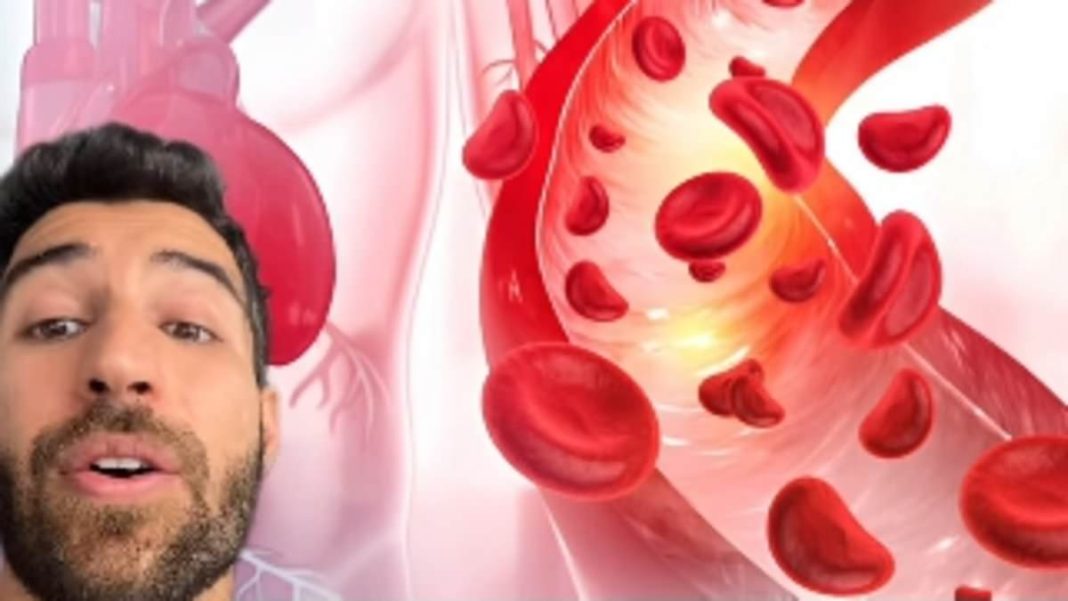The subtle sign that you could mean liver failure or cancer,
Bruising without explanation should never be ignored as it can be a little-known sign of deadly blood cancer, a doctor has warned.
According to GP Dr Sermed Mezher, the small purple, brownish marks could in fact indicate a range of hidden diseases, including thyroid conditions and liver failure.
In an Instagram clip posted to Dr Mezher’s page, where he has over 349,000 followers, he revealed an image of a woman’s legs that illustrated the type of bruising to watch out for.
‘Bruising without a clear explanation—such as not recalling an injury or impact—is a potential sign that something more serious may be going on beneath the surface and should not be ignored’,’ he said in the video.
‘Frequent or severe bruising without cause can be a red flag.’
Social media users took to the comment section to echo Dr Mezher’s warning.
‘My dad had small bruises all over his legs (before) leukemia. May he rest in peace,’ said one.
Another, @nay_theposho, said: ‘Before my diagnosis (acute T-cell leukemia at ten) I had all these weird things happen.
‘Mum remembers I had started getting chubby but I had lost all the weight so she didn’t think about it, nor my numerous bruises since I was a clumsy child.
‘Then my breathing got funny and I was seen four times before they officially diagnosed me.’
‘A very key sign that had been missed was a strange purple bruise. Always be vigilant.’
Excessive bruising is common in blood cancer due to a deficiency in a type of blood cell called platelets, which help the blood to clot after an injury.
A lack of these cells mean the body cannot stop blood vessels from bleeding under the skin, leading to bruising.
Other signs of blood cancer include fevers, night sweats, weight-loss, tiredness and swollen lymph nodes, Dr Mezher added.
Blood cancer is not the only potentially fatal condition bruising can be a sign of.
If it is accompanied with yellowing of the skin and whites of the eyes, it can also be a tell tale symptom of liver disease that kills over 12,000 Britons and 50,000 Americans every year, he warned.
When the liver is damaged, it cannot produce sufficient amounts of proteins needed to help the blood clot.
Meanwhile excessive bleeding from other areas like the nose gums or during menstrual periods it could be a sign of a bleeding disorder such as hemophilia.
This is when someone is prone to excessive bleeding because the body is unable to clot.
These conditions are estimated to affect 7,625 women and 4,310 men in the UK, but many thousands remain undiagnosed, according to The Haemophilia Society.
‘If you also can’t tolerate the cold and are gaining weight easily and are tired all the time, it could be a sign of a thyroid problem,’ Dr Mezher added.
This is a medical condition that prevents the thyroid—the little, butterfly-shaped gland in the neck—from making the right amount of hormones, leading to a range of symptoms including muscle weakness, depression, and brain fog.
It’s estimated that one in 20 people in the UK have a thyroid problem, with women six times more likely to suffer from the condition than men.
‘If you also have hypermobility or stretchy skin, then it could be a sign of a connective tissue disorder like Ehlers Danlos syndrome (which can cause life-threatening complications in a rare cases),’ he added.
‘Getting evaluated by a healthcare professional can help rule out serious causes and insure that, if treatment is needed, it begins early.
‘Unexplained bruising isn’t something to brush off—it’s your body’s way of signalling that something might be wrong.’






